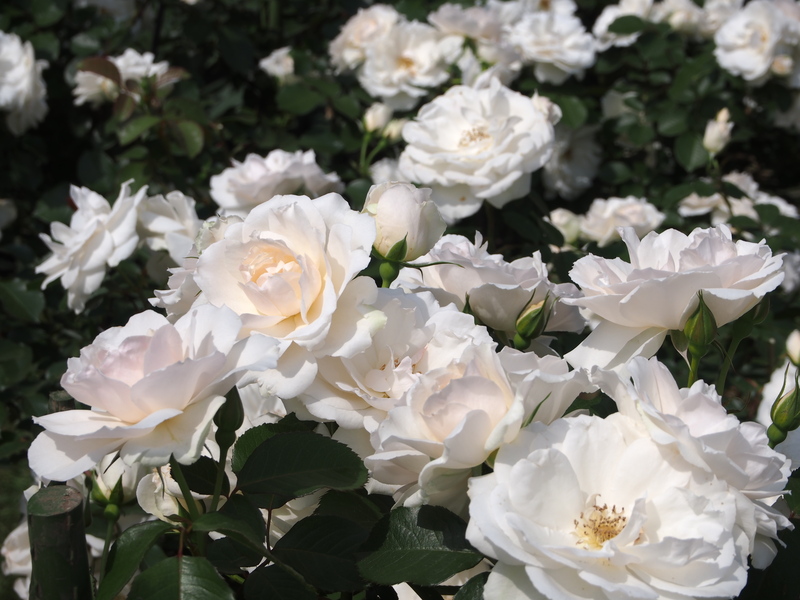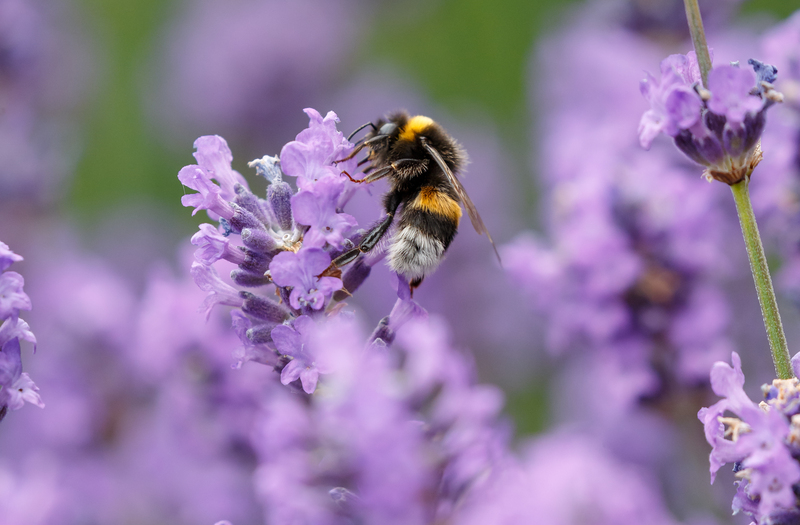Discover How Strategic Planting Can Give You a Secluded Garden
Are you craving more privacy in your outdoor space? Many homeowners dream of turning their gardens into peaceful escapes away from prying eyes. If fences aren't your style, you'll be delighted to learn that strategic planting can transform your yard into a lush retreat with natural, living walls. In this guide, you'll learn everything about how to achieve a secluded garden using the power of plants.
Why Privacy in the Garden Matters
A secluded garden isn't just about hiding from neighbors. It's about creating a sanctuary, a place to relax and connect with nature. Privacy improves your sense of security, lets you entertain without distractions, and even helps provide a noise buffer. Strategic planting for privacy uses layers of trees, shrubs, and climbers to foster both beauty and tranquility.
Key Benefits of a Secluded Garden Made with Plants
- Natural aesthetics: Living screens blend seamlessly into your landscaping.
- Seasonal interest: Choose trees and shrubs for flowers, fruit, or autumn color.
- Wildlife habitat: Dense planting shelters birds, pollinators, and beneficial insects.
- Environmental benefits: Plants purify air and cool your garden in hot weather.
- Noise and pollution reduction: Green barriers help filter sound and airborne particles.

Getting Started: Assessing Your Garden's Privacy Needs
Before you rush to plant, take time to analyze your garden. Effective privacy landscaping starts with understanding which areas need screening, how much seclusion you desire, and what conditions your plants will face. Here's what to consider:
- Boundaries: Are you overlooked by neighbors, roads, or public spaces?
- Views: Which sights do you want to keep (mountains, sunsets) and which to block (unsightly sheds, direct sightlines)?
- Sunlight: Does the area get full sun, partial shade, or dense shade?
- Soil type and moisture: Are the soils sandy, clayey, dry, or wet?
- Space: How much room do you have for planting? Consider mature plant sizes.
Privacy Solutions for Different Garden Types
- Urban gardens: Use vertical planting, bamboo screens, or small ornamental trees.
- Suburban gardens: Hedges, multi-layer borders with fast-growing screening plants, and trellised climbers work wonders.
- Rural gardens: Larger windbreaks with mixed native trees and shrubs maximize privacy and biodiversity.
Strategic Planting Techniques for a Secluded Garden
Plants enhance privacy best when chosen and sited wisely. Strategic planting isn't just about blocking every view -- it's about using height, density, and variety to create a secluded-yet-beautiful retreat. Here's how:
1. Layering for Maximum Screening
Layered planting mimics nature's own fences. Start with a row of tall trees, then underplant with dense shrubs and lower perennials. This multi-tiered approach blocks sightlines at every level, giving you both privacy and seasonal beauty.
- Trees: Create overhead screening and shade.
- Shrubs: Fill the mid-level for solid, year-round cover.
- Perennials and groundcovers: Soften edges and prevent gaps at ground level.
2. Using Living Walls and Vertical Gardening for Privacy
If space is limited, living walls or vertical gardens are a brilliant secluded garden idea. Use panels or trellises planted with evergreen climbers or combine tall pots with ornamental grasses for instant screens on patios or balconies.
- Climbers: Clematis, honeysuckle, evergreen jasmine, and ivy grow fast and cover unattractive fences.
- Espaliered trees: Train apples, pears, or magnolias against a wall for privacy plus fruit or flowers.
- Trellised shrubs: Pyracantha, cotoneaster, and climbing roses provide privacy and seasonal colour.
3. Hedges: The Classic Natural Screen
For centuries, hedges have been the go-to answer for a secluded garden. Choose the right species for your needs:
- Evergreen hedges: Laurel, yew, holly, or box provide year-round cover.
- Flowering hedges: Lilac, forsythia, or hawthorn add scent and color.
- Mixed hedges: Combine different shrubs for a less formal, wildlife-friendly border.
Tip: Hedges need ongoing maintenance but can be trimmed to fit even the smallest spaces.
4. Fast-Growing Privacy Plants
If you want privacy quickly, certain species shoot up in no time. Always choose plants known to thrive in your climate.
- Bamboo: Choose clump-forming types to avoid invasive runners.
- Privet: A classic for instant hedges, privet grows in sun or shade.
- Photinia x fraseri 'Red Robin': Attractive red young leaves and fast growth.
- Italian cypress: Upright and elegant, ideal for height without width.
Be aware: Some fast-growers need regular pruning to remain tidy and non-invasive.
5. Ornamental Trees for Spot Screening
You don't need a whole hedge to block a specific view. Ornamental trees can create pocket privacy zones, especially in seating areas or patios.
- Silver birch: Light canopy, delicate look but effective screen.
- Amelanchier: Multi-season interest, compact size for urban gardens.
- Japanese maple: Beautiful foliage, especially in partial shade.
Designing Planting for Privacy: A Step-by-Step Guide
Ready to craft your own secluded garden? Follow these steps for success:
Step 1: Plan Your Layout
Sketch your garden and mark areas needing the most screening. Consider existing structures, available light, and future plant size. Decide whether you want a solid barrier or dappled privacy with framed views.
Step 2: Select Your Plant Species
- Favor evergreens for year-round cover if privacy is needed all seasons.
- Mix in deciduous plants for color, wildlife, and layered interest.
- Adapt your choices to soil, sun, and local climate.
- Choose native species wherever possible for lower maintenance and improved biodiversity.
Step 3: Plant with Staggered Rows
Avoid planting in straight lines. Instead, stagger plants in double or triple rows for a dense, natural look and more effective privacy. This also reduces gaps as plants mature.
Step 4: Include Vertical and Container Solutions
For balconies, patios, or areas where in-ground planting isn't possible, try containers or trellised vertical gardens. These can be moved as needed and easily updated for seasonal color.
Step 5: Ongoing Care and Maintenance
- Watering: Young plants need extra care until established.
- Pruning: Trim hedges and climbers to maintain density and keep them in shape.
- Feeding: Apply compost or balanced fertilizer as recommended for your chosen species.
- Weeding and mulching: Mulch suppresses weeds and locks in moisture.
The Best Plants for Garden Privacy: Top Choices
Here is a selection of popular, effective plants for strategic privacy planting:
Evergreen Shrubs and Hedges
- Cherry laurel (Prunus laurocerasus) - Fast, dense, very tough.
- Portuguese laurel - Slender growth, glossy leaves, lovely scented flowers.
- Holly (Ilex) - Variegated or plain green, with winter berries for birds.
- Box (Buxus sempervirens) - Classic for smaller, formal or topiary hedges.
Fast-Growing Species
- Griselinia littoralis - Salt-tolerant, ideal for coastal gardens.
- Bamboo (Fargesia species) - Clump-forming, non-invasive types recommended.
- Leylandii cypress - Very fast, but requires regular pruning to keep in check.
Flowering and Seasonal Interest Plants
- Forsythia - Early spring yellow flowers.
- Viburnum tinus - Evergreen, with winter flowers and berries.
- Hydrangea paniculata - Large summer flowers, excellent for informal screens.
Climbers and Vertical Solutions
- Evergreen jasmine (Trachelospermum jasminoides) - Sweet-scented white flowers in summer.
- Clematis armandii - Early-spring white-flowered climber.
- Pyracantha - Dense, spiny, with masses of berries in fall.
Native Hedges (UK/Europe)
- Hawthorn (Crataegus monogyna) - Excellent for wildlife and security.
- Blackthorn (Prunus spinosa) - Beautiful spring blossom, produces sloes.
- Hornbeam (Carpinus betulus) - Holds brown leaves in winter for extra screening.
Consult your local garden center or extension office for tailored suggestions to your locality.
Alternative Ideas for Seclusion Beyond Plants
While plant-based screening is beautiful, other methods can enhance your garden's seclusion. For the ultimate in privacy, combine these with strategic planting:
- Garden structures: Pergolas, gazebos, and covered patios add instant privacy overhead and around seating.
- Fencing screens: Modern slatted screens or willow hurdles blend with natural planting.
- Water features and sound: Fountains and streams mask noise and create a peaceful sound barrier.
- Raised beds and berms: Elevate plantings for more immediate coverage.

Frequently Asked Questions (FAQs)
How long does strategic planting take to provide privacy?
With fast-growing species, you may achieve good privacy within 2-3 years, while slower-growing but longer-lasting options like yew or hornbeam can take 5-7 years. You can also combine slower and faster-growing plants for both instant and mature privacy.
Do I need planning permission to plant privacy screens?
Typically, you don't need permission for planting. However, height limits or protected species may apply. Always check local regulations, particularly if planting trees or large hedges near boundaries.
What's the best maintenance routine for a secluded garden?
- Regular watering, especially for new plantings.
- Shaping hedges and pruning climbers at least once a year.
- Mulch annually with compost or bark to suppress weeds and feed the soil.
How do I add privacy to a small garden?
Vertical solutions work wonders. Use stepped planters, tall grasses, and climbers on trellises or fences. Compact trees and bamboo in containers provide privacy without taking up much space.
Conclusion: Your Personal Sanctuary Awaits
With a thoughtful approach to planting, you can enjoy a secluded garden that is as beautiful as it is private. By matching the right plants to your space, layering for density, and investing in ongoing care, your living privacy screen will flourish season after season. Whether you want year-round seclusion, seasonal blooms, or a wildlife haven, strategic planting for privacy offers a natural and rewarding solution.
Start today -- and discover how your garden can be transformed into your own private paradise!